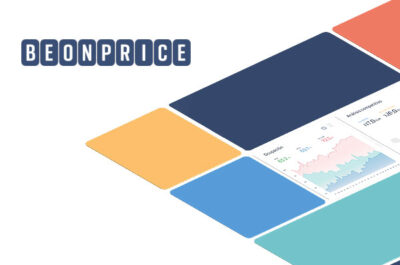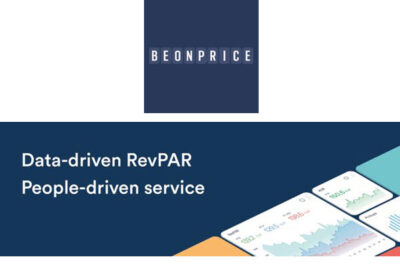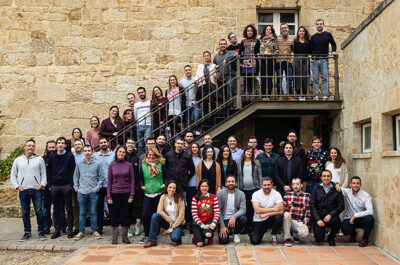2020 focus for the hotel rate plan.
What does 2020 hold for the travel industry? The memory of Thomas Cook may linger but one important lesson from their demise stands out as a strategy: reliance on one supplier can endanger your business, so it’s time to think multi-channel and be more dynamic.
Revenue management is by no means a new concept in travel, airlines in the US have been using it since the late 1970s, with Delta Air Lines thought to boast around 150 pricing-related staff roles in the mid 1980s.
Consumers know – book early and your flight will most likely be cheaper. As the plane fills, prices increase.
More recently, Uber has relied on ‘surge pricing’ when its peak pricing is in effect, changes in rates is much more acceptable for today’s time poor, supply and demand culture.
While modern technology has reduced the number of staff needed to make intelligent business decisions, there is still a call for a large number of talented and experienced revenue managers to optimise the bottom line.
The team at Beonprice – an RMS technology solution which partners easily with Mews and other PMS systems – have compiled their top five trends in hotel revenue management for the coming year. When looking at business expectations for the next year, these are the key trends we expect to evolve over the next year to give hotels precise 2020 focus:
Intelligent industry benchmarking
Success in the hotel world is not just a case of supply and demand, but a wider consideration of multiple market factors such as a property’s brand, amenities and services, reputation and competitor positioning which all contribute to the ‘right rate’. A blend of many factors, our unique Hotel Quality Index allows hoteliers to truly understand the value of their property and how to optimise rates, giving value to the consumer.
Beonprice’s HQI is the only hotel market index to measure the integral quality of a hotel in order to understand its true competitive position and price elasticity of demand in the market. HQI assesses over 350 elements of a hotel, its competitors and its positioning to drive pricing and distribution decisions in real time.
The greater insight hoteliers have on their position in the market at any given point in time, will give them greater confidence setting rates and more control over distribution and working with the right partners.
The new revenue manager
The biggest challenge is the lack of fully trained Revenue Managers in the industry. Constant training and development is required to improve this situation. Companies also need to make an effort to introduce a Revenue Management culture at all levels in the organisation – it’s not sufficient just to appoint a revenue manager, you need to ensure that the whole company is aligned.
Today’s revenue manager needs to have had specific training in revenue management, and knowledge of the hospitality market. Revenue manager’s today need to have strong analytical skills, be interested in big data processes, keen on new technologies and are able to lead and coach a team. This relies on excellent communication skills and team focus, moving towards a transversal approach to different departments.
Revenue managers also need to be able to deal with distributors and tech providers to build strong relations and negotiate deals. With the quickly changing sales and distribution landscape, revenue managers need to be continuously learning and updating their skills to stay abreast.
Revenue culture and total revenue management
While most advanced Revenue Managers are optimizing both meeting space and rooms, optimization of all the revenues in a hotel is not yet a reality. Although progress is being made, we are realistically 4 – 5 years away from consolidating all data for an holistic approach to revenue management.
More important is achieving a revenue management culture within each property where each employee understands the role they play to revenue generation and how each department can contribute to the success of the hotel. The revenue manager as lead ambassador of cultural development needs to ensure that the workforce are participating in meetings, are a part of decision-making and are being listened to.
The more that hotel employees are encouraged to take on new responsibility in the team the quicker the hotel can make massive gains in revenue management culture. Having a strong revenue management culture will go a long way in helping to identify future talent in the organisation.
Ai and Machine Learning
Data Science is today key to revenue management development, as its techniques are based on the analysis of large amounts of information that need to be converted into knowledge to facilitate decision making. All this info has been analysed manually so far, with the help of spreadsheets, that make the job tough, operative, and with no time for strategic or creative consideration.
Artificial intelligence with machine learning is alleviating revenue managers from data consolidation and number crunching to look at the visualisation of data depicting market trends and activity. This new layer of technology is giving revenue managers the power to make decisions quicker, and develop new rate plan structures to tap into new markets and create more segmented offers.
With a wider distribution mix, rate plans need to match the opportunities in the market. Artificial intelligence is helping revenue managers to identify patterns and highlight issues before they negatively impact the bottom line.
Dynamic Packaging
Dynamic pricing has long been accepted in the travel industry by consumers. And it’s by no means a new idea. The domination of OTAs and high commission charges has forced hotels to find new ways to achieve reservations and drive direct bookings, looking at a wider distribution mix.
This will have a profound impact on the way travel agents do business with accommodation providers. The days of wholesale deals, negotiated fixed rates and static contracts will vanish, with travel agents at the mercy of market activity and flexible contracts.
Dynamic pricing is here to stay. Just as Thomas Cook’s demise was a warning to hotels not to rely on one source of business, agents too need to broaden their horizons. Hotels are widening their distribution channels; agents and operators will need to work harder to secure allocations and rates. Agents who can respond to the evolution of hotel rates by being dynamic in contracting and selling, and move towards a multi-channeled business model, will be a long way towards leaping into the new year with perfect 20/20 vision.
Vicky is the co-founder of TravelDailyNews Media Network where she is the Editor-in Chief. She is also responsible for the daily operation and the financial policy. She holds a Bachelor's degree in Tourism Business Administration from the Technical University of Athens and a Master in Business Administration (MBA) from the University of Wales.
She has many years of both academic and industrial experience within the travel industry. She has written/edited numerous articles in various tourism magazines.


































































































































































































































